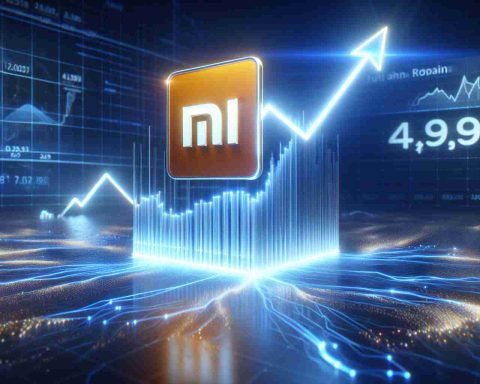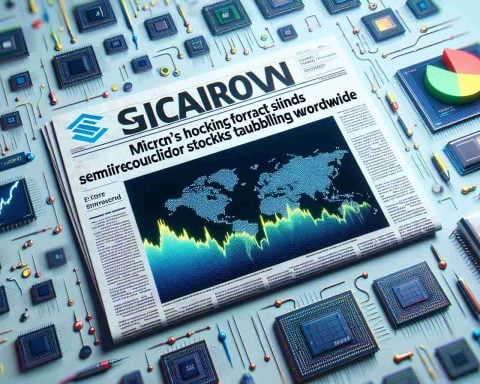- Tesla’s stock has plummeted by over 25% since December, making it the largest drop within the Magnificent Seven group.
- The company faces challenges with declining sales, narrowing margins, and reduced brand appeal, particularly in the German market, where demand fell by over 60%.
- Elon Musk’s political controversies and his $97 billion bid for OpenAI are fueling investor anxiety and concerns about his focus on Tesla.
- Investors worry that Musk might sell more Tesla shares to fund the OpenAI acquisition, reminiscent of his prior Twitter purchase impact.
- Musk’s increasing responsibilities and potential new roles are raising red flags regarding possible distractions from Tesla’s future goals.
- Tesla’s valuation, currently at 90 times next year’s earnings, suggests a precarious outlook amidst leadership uncertainties and intensified EV market competition.
Tesla’s once-thrilling ride is hitting a rough patch, leaving investors gripping their seats as the stock nosedives over 25% since December. This drop makes Tesla the biggest loser among the Magnificent Seven, shattering its once-stalwart image in a dramatically competitive market. The company is grappling with sliding sales, narrowing margins, and waning brand allure, especially in pivotal markets like Germany, where demand has plummeted by more than 60%.
At the center of this storm is Elon Musk, whose political controversies seem to be repelling core customers. While the tech visionary dreams of a groundbreaking self-driving robotaxi rollout by June, doubts are growing amid intensifying competition in the EV arena.
Adding to the tension, Musk’s unexpected $97 billion offer for OpenAI is stirring anxiety about his focus and Tesla’s financial health. This large-scale acquisition attempt revives memories of his Twitter purchase, which saw Tesla shares dive by a third. Investors fear a repeat might be on the horizon as rumors swirl that Musk could liquidate more shares to fund this audacious bid.
Musk’s mounting responsibilities—from Tesla and SpaceX to new roles, including a rumored position in the Trump administration—raise red flags about potential distractions affecting Tesla’s long-term vision. The company, currently valued at an astronomical 90 times next year’s earnings, faces a precarious path.
As Tesla slips further today, down another 5.15% by midday, the questions loom: Can Musk’s ambitions shift Tesla into an AI-driven juggernaut, or will the company falter under the weight of its own expectations and a turbulent leadership narrative? The battle for Tesla’s future remains a high-stakes drama with an uncertain script.
Tesla’s Tumultuous Year: Will Musk’s Bets Drive Innovation or Distract from Core Strengths?
Tesla has long been at the forefront of electric vehicle innovation, but recent challenges have placed the company under intense scrutiny. As Tesla’s stock continues to slump, investors and industry experts are closely monitoring the factors contributing to its current predicament and potential future pathways.
Key Challenges for Tesla
1. Declining Sales and Market Performance:
– Tesla’s sales have plummeted in key international markets, most notably Germany, where demand has decreased by over 60%. This decline is particularly troubling as Tesla relies on these markets to expand their global footprint.
– The stock has fallen more than 25% since December, marking Tesla as the worst performer among the “Magnificent Seven” tech giants.
2. Narrowing Profit Margins:
– As competition intensifies in the EV market, Tesla has faced mounting pressure to cut prices, leading to squeezed margins. Emerging companies are challenging Tesla’s dominance with competitive pricing and innovative features.
3. Brand Image and External Factors:
– Elon Musk’s political controversies may be repelling some core customers, affecting Tesla’s brand allure. This image issue could have long-term effects on customer loyalty and market positioning.
Musk’s Bold Moves and Their Implications
1. Potential OpenAI Acquisition:
– Musk’s $97 billion offer for OpenAI has stirred investor anxiety about its implications for Tesla’s financial stability. Concerns linger that he may need to liquidate Tesla shares to finance this purchase, potentially impacting stock prices.
2. Leadership and Management Concerns:
– Musk’s involvement in multiple high-stakes ventures, including rumored political positions, has raised questions about his ability to focus on Tesla’s long-term goals. Distractions could hinder the company’s efforts to innovate and lead in a competitive EV landscape.
Future Prospects and Insights
1. Self-Driving Robotaxi Initiatives:
– Musk’s ambitious vision to roll out a self-driving robotaxi by June faces skepticism amid intensified competition from other EV manufacturers investing heavily in autonomous driving technology.
2. Market Outlook and Predictions:
– Analysts have mixed predictions on Tesla’s ability to pivot towards AI-driven innovations while maintaining its market share in the EV sector. The company’s valuation at 90 times next year’s projected earnings suggests high expectations but also substantial risks.
3. Potential for New Innovations:
– Despite current setbacks, Tesla remains a critical player in the sustainable transportation field. Their investment in technology and renewable energy solutions could yield groundbreaking advancements, provided they maintain operational focus and strategic clarity.
Questions Investors Are Asking
– Can Tesla sustain its market leadership amid growing competition and internal challenges?
– Will Musk’s involvement in diverse ventures dilute his effectiveness in leading Tesla?
– How will potential acquisitions and strategic shifts impact Tesla’s financial health and stock performance?
For more detailed information on Tesla and its market strategies, explore these reliable sources:
Tesla, Reuters, The Wall Street Journal.
Tesla’s journey ahead is fraught with uncertainties, where each decision by its visionary leader could sway its future for the better or push it into further turmoil. The world watches closely to see if Tesla can leverage its technological prowess to redefine industries once more or succumb to the very pressures that it helped create.

















